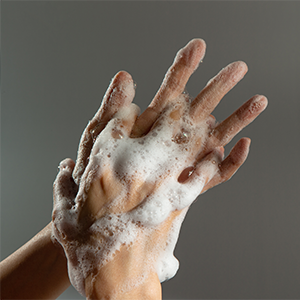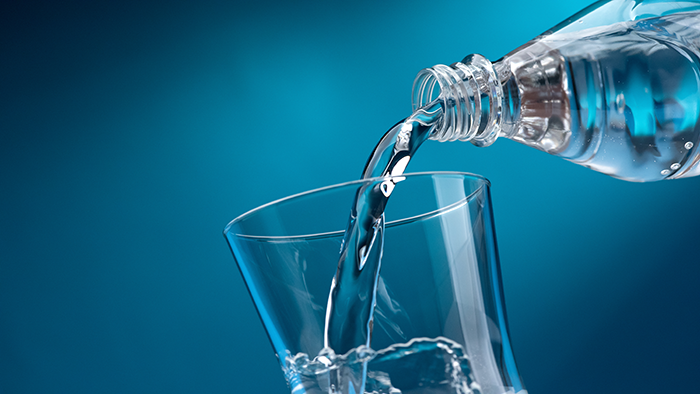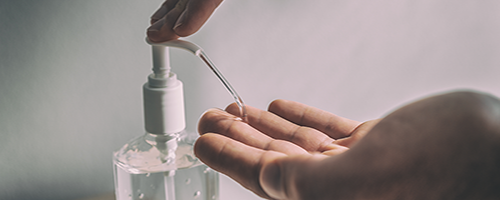More than ever, many of us are relying on hand sanitizers to keep us safe during COVID-19. But some hand sanitizers are putting our health at risk.
What are the issues with hand sanitizers?
The FDA has identified three concerns:
METHANOL POISONING
Over 186 brands contain methanol (aka wood alcohol) which can lead to methanol poisoning (via swallowing, skin contact, inhalation, or direct eye contact)
DOES NOT KILL COVID-19
20 brands do not contain enough ethanol or isopropanol to be effective against killing COVID-19
MISLEADING PACKAGING AND FLAVORING
Some brands are being packaged in food or drink containers (beer cans, children’s food pouches, water bottles, juice bottles). In addition, some products are being flavored as chocolate or raspberry
The rest of the story…..
In This Article
Methanol Poisoning

If soap and water are not readily available, the CDC recommends the use of alcohol-based hand sanitizer products that contain at least 60% ethyl alcohol (ethanol) or 70% isopropyl alcohol (isopropanol). According to the Food and Drug Administration (FDA), which regulates alcohol-based hand sanitizers as an over-the-counter drug, methanol (methyl alcohol) is not an acceptable ingredient.
Cases of methanol toxicity following ingestion of alcohol-based hand sanitizer products have been reported in some people with alcohol use disorders. On June 30, 2020, CDC received notification from public health partners in Arizona and New Mexico of cases of methanol poisoning associated with ingestion of alcohol-based hand sanitizers. At least four people died, one person became blind and others had various illnesses that required medical attention.
How did we get here?
At the beginning of the pandemic, to get more hand sanitizer on the market as quickly as possible, the FDA lifted many of its restrictions on selling hand sanitizer to make sure hand sanitizers were available. Ultimately, that added 1,500 more manufactures to the market. This FDA action unintentionally cleared the way for potentially unsafe hand sanitizers.
The FDA is now testing and maintaining a list of FDA-tested and recalled hand sanitizers on the FDA website . The FDA’s ongoing investigation has found methanol contamination ranging from 1 percent to 80 percent in various sanitizers.
Hand Sanitizers Not Strong Enough to Kill COVID-19
At the opposite end of the spectrum, in mid-August twenty sanitizers have been flagged by the FDA as not containing enough active ethanol, isopropanol or other active ingredients to be effective in killing the virus that causes COVID-19.

How to Protect Yourself
According to Dr. Matthew G. Heinz, a hospital physician in Tucson, Arizona, 60% alcohol is the minimum concentration for a hand sanitizer to be effective. Lower concentrations mean diminished disinfectant properties, he said.
“Depending on the exact concentration, it may almost have the same effect as putting water on,” Heinz said Tuesday. “If we’re talking something in the 15, 20, 25% range, you may not be able to really kill anything.”
Asked how much sanitizer a person should use, Heinz recommended an amount that would cover the hands entirely, not just the palms. But using hand sanitizer repeatedly throughout the day, he said, is no substitute for using warm water and soap for cleaning.
“After multiple uses, you can start diminishing the effectiveness of the hand sanitizer,” Heinz said. “You really do need to actually wash with soap and water for 20 seconds or more to kind of renew things. You really can’t just apply hand sanitizer 40 times throughout the day and think that you’re good.” Source: New York Times
Here are 4 ways:
- Watch out for hand sanitizers that falsely claim they can offer absolute or extended protection against the virus that causes COVID-19 (the most they can do is kill up to 99.9 percent of germs, viruses or bacteria).
- Also avoid any hand sanitizers that promote themselves as “FDA-approved” (the FDA hasn’t approved any hand sanitizers).
- If soap and water aren’t available, use a hand sanitizer with at least 60 percent ethyl or isopropyl alcohol to help keep you from getting sick or spreading germs to others.
- Check any hand sanitizers you’re using or are considering buying against the FDA list. This list contains over 150 hand sanitizers to avoid and the list continues to grow.

Misleading Packaging and Flavoring
In late August the FDA put out a news release warning consumers about hand-sanitizers being packaged to appear as food or drinks that could put consumers at serious risk of injury or death if ingested.
From beer cans and water bottles, to juice bottle and children’s food pouches, all of these containers have been packaged with hand sanitizers. In addition, the FDA even found food flavors (chocolate and raspberry) in some products.
Hand sanitizer can be toxic when ingested. The FDA report noted a consumer who thought they were drinking a bottle of water when, in fact, it was hand sanitizer.
The FDA Commissioner, Dr. Stephen Hahn noted in the release, “I am increasingly concerned about hand sanitizer being packaged to appear to be consumable products, such as baby food or beverages. These products could confuse consumers into accidentally ingesting a potentially deadly product. It’s dangerous to add scents with food flavors to hand sanitizers which children could think smells like food, eat and get alcohol poisoning,”
FDA urges consumers not use certain hand sanitizer products
Avoid hand sanitizers with lables that contain the following information
- Has been tested by FDA and found to contain methanol or 1-propanol.
- Is labeled to contain methanol.
- Has been tested and is found to have microbial contamination.
- Is being recalled by the manufacturer or distributor.
- Is subpotent, meaning it has less than the required amount of ethyl alcohol, isopropyl alcohol or benzalkonium chloride.
- Is purportedly made at the same facility as products that have been tested by FDA and found to contain methanol or 1-propanol.
At Vanguard Cleaning Systems we are here for you, more than ever. If we can be of service to you, please give us a call at 651-379-4000.

